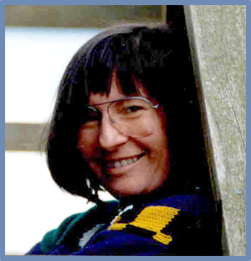MILLSTONE PRIZE
Awarded to the best interdisciplinary paper presented at the annual meeting.
Amy Millstone, Professor of French Literature at the University of South Carolina, was one of the prime movers in the Western Society for French History during the 1980s and 1990s. She served on the governing council and distinguished herself in regular conference presentations as a scholar of nineteenth- and twentieth-century French popular culture. Through her singular energies and enthusiasm, Amy drew together diverse resources and personalities. In the process, she helped orchestrate some of the most memorable moments in the Society's history. In 1989, Amy arranged for the free use of two executive jets to fly a talented group of musicians from the University of South Carolina to perform on Napoleonic-era instruments at the New Orleans meeting, a highlight of the Society's bicentennial commemorations. In 1996, she literally saved the annual meeting in Charlotte, North Carolina, by agreeing to step in as local host when the UNC-C coordinator could not fulfill the obligation. She secured a distinguished panel of guest speakers, arranged hotel accommodations, and even stuffed conference packets in the last hours before the conference. At the same meeting in 1996, she dazzled participants with a multi-media presentation which explored the fin-de-siècle chanson, Paris landmarks, and working-class identities. Her efforts were all the more impressive because she was in the last stages of a battle with leukemia. Her life's work on the nineteenth-century, right-wing author and independent woman, Gyp, was brought short by her untimely death in January 1997, but her legacy continues as a consquence of her generous bequest to the WSFH.
Since 1998, the Millstone Prize, awarded to the best interdisciplinary paper presented at the annual conference, honors Amy's singular ability to use literature, music, dance, and film to teach French civilization and history to students and colleagues alike.
Eligibility
The Millstone Prize is awarded for the best interdisciplinary paper presented at the annual conference. It recognizes the paper that best brings to the annual meeting research, methods, or insights drawn from a field other than History to enrich, challenge, or expand our understanding of the French past. All papers presented at the annual conference are eligible for the prize, which carries an award of $500.
Previous Winners
2024. Katie Jarvis, University of Notre Dame, “Jurisdiction over Souls: Contesting Confession in the French Revolution.”
2023. Elise Franklin, University of Louisville, “Abduction in the Archives.”
2022. Hannah Stamler (Princeton), “Le plus bel enfant de la France: Beauty Competitions and the Formation of Model Children in Interwar France.”
2019. Patrick Luis Sullivan De Oliveira, Princeton University, for “Ce gentlemen[sic] rider du turf atmosphérique: Ballooning, Masculinity, and the Colonial Imaginary in turn-of-the-century France.”
2018. Mita Choudhury, Vassar College “Performativity and Faith: Rethinking Judith Butler and the Convulsionnaires of Saint-Médard.”
2017. Victoria Thompson, Arizona State University, "Memories of Fear in the Early French Revolution."
2016. Jill Rogers, "Music, Mourning, and Corporeal Memory in Interwar France."
2015. Matthew Friedman, Rutgers University. "Americans in Paris: Music and the Interrogation of Transatlantic Modernisms."
2014. Linda Stratford, Asbury University. "Cadillacs, Jet Planes and H-Bombs: American Art in France Following the Liberation."
2013. Libby Murphy, Oberlin College. "Re-Casting the Débrouillard: From National Hero to National Shame (And Back Again)."
2012. Kristine Wirts, University of Texas-Pan American. "The Devil Does His Mischief: An Interesting Glimpse into the Huguenot World of Demonology in the Scientific Age."
2011. Giora Sternberg, Harvard University. "The Manipulation of Louis XIV: Fabricating Evidence at the Bourbon Court."
2010. Peter Soppelsa, University of Michigan. "Finding Fragility in Paris: The Politics of Infrastructure After Haussmann."
2009. John Monroe, Iowa State University. "Developing Art Nègre: Photographing Colonial Material Culture, 1915-1930."
2008. Judith A. Miller, Emory University. "After Sentiment: The Stoic 'Real' World of the Directory."
2007. Sandra Ott, University of Nevada-Reno. "Gift-Giving and the Management of Justice: Borderland Basques Under German Occupation (1942-1944) and During the Liberation."
2006. Jennifer J. Popiel, Saint Louis Univeristy. "Civic Virtue, Sex Roles, and Rousseau: Women and the Politics of Everyday Life."
2005. Diana Davis, UC-Davis. "Eco-Governance in French Algeria: Environmental History, Policy, and Colonial Administration."
2003. Nicole Rudolph, New York University. "The Voice of Those Who Have No Voice: Critiques of State-Planned Housing in 1950s France."
2002. Robin Walz, University of Alaska Southwest. "From Carnivalesque to Rocambolesque: Ponson du Terrail and the Popular Novel Under the Second Empire."
2001. Sheila Crane, Northwestern Univeristy. "Digging Up the Present: Reconstructing Place and History in Postwar Marseille's Vieux-Port."
2000. Kathryn Norberg, UCLA. "Visualizing Prostitution: Representations of Prostitutes in Early Nineteenth-Century France."
1999. Pierre Verdaguer, University of Maryland-College Park. "Manipulating the Past: The Role of History in Contemporary French Detective Fiction."
1998. Brett Bowles, Iowa State Univeristy. "Marcel Pagnol's La Femme du boulanger (1938): A Cinematic Representation of the Charivari."




